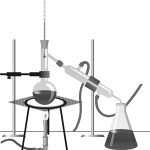Scientists have known for a while that our memories are the process are synaptic transmissions in our brain and are stored in neurons, but they have been able to film the actual process for the first time inside of a mouse.
Memories are made by messenger RNA (mRNA) that encode β-actin protein. These proteins are responsible for shaping and structuring cells in the neurons. As events unfold, β-actin protein is responsible for reshaping the neurons and creating a path, retracing the synaptic steps. Memory retention is delicate business, and it is possible for even a single molecule to determine whether or not the memory is stored. Any disruptions in the process can result in a lost memory.
Because the process is so delicate, it has been incredibly difficult for researchers to see it happen in real time. First, they tagged the mRNA which codes for β-actin protein with green fluorescent protein. Aside from the tag, there was no genetic modification performed on the mouse. By keeping the process as streamlined as possible, the team prevented possibly contaminating the results.
The researchers then stimulated the hippocampus, which is a small region of the brain that has most of the ability to form and store memories. Following stimulation, the researchers were actually able to witness the synthesis of the β-actin-encoding mRNA in the nucleus of the neuron. The molecules were then tracked out to the dendrites, where communication between neurons takes place.
References:
- H. Y. Park et al., "Visualization of dynamics of single endogenous mRNA labeled in live mouse," Science, 343:422-4.
- A. R. Buxbaum et al., "Single β-actin mRNA detection in neurons reveals a mechanism for regulating its translatability," Science, 343:419-22, 2014.
